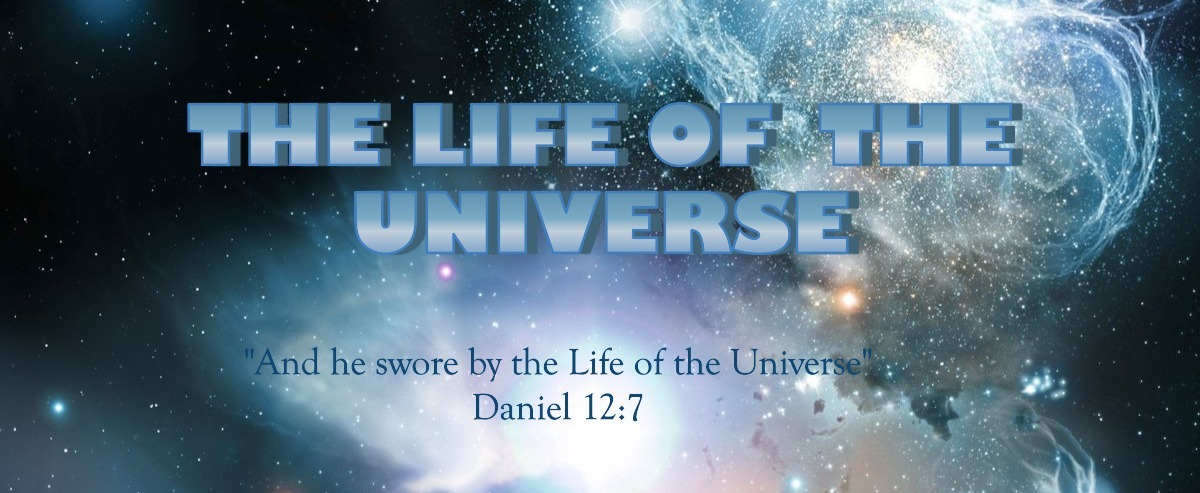Time of Reckoning Has Come
“Who created the universe is a matter of knowledge. Why it was created is a matter of faith. God is knowable through Torah and Mashiach”. Navah
Year 5990!
Are we due for the arrival of the Messiah? According to the reckoning of time of this ministry, this is year 5990 from Creation, which began with Rosh HaShanah (Head of the Year) at the sunset of the 30th day of March 2025 (Gregorian calendar). May we merit seeing the coming of our Mashiach speedily in our days!
Source: Space Webb Gallery NASA
Purim 2026:
Ta’anit Esther (Fast of Esther): Monday, March 2 (from dawn until sundown).
Purim (Main Celebration): Tuesday, March 3.
Shushan Purim: Wednesday, March 4.
How the Khazars Understood the True Purim
It should not come as a surprise to our readers that the ancient Khazars had understood the lesson of the true Purim better than us once this article is read. But who were the Khazars, and what did they know about the true Purim before they converted to Judaism? The Eternal always provides a reason as to why an individual, or a nation, would deserve punishment. The Book of Esther, however, does not explicitly state what the people did to deserve the threat of extermination. The story of Purim has not stated it explicitly, indeed, but implicitly. And this is the subject of our study, which we will develop in the following. Read more.
Suggested reading for Purim:
The True Purim and the Untold Truth
Weekly Torah Portion with Time of Reckoning Ministry:
Ki Tisa, “When you take”: Exodus 30:11-34:35
The Messenger of His Face and How Torah was Given to Israel
When Mosheh Declined the Messenger of YHVH
Idols as Mental Substitutes in the Mind
Why did Moses Have to Break the Tablets of the Covenant of YHVH?
Where are the Tablets of Stone Moses Broke? Are They Lost Forever?
From the Golden Calf to the Face Masks
Is God Really Cool with Cannabis?
Is Really Marijuana in the Bible?
Textual Criticism of Translations: Capitalization
Unseen Wonders in the Land Yet to be Fulfilled
TORM featured articles:
The Bible Code in the Exodus: Mashiach Day and Night
Time of Reckoning Ministry (TORM) 1 February 2026: In the following, we would like to posit another way to look at the Exodus of Israel from Egypt, specifically in reference to the guide of the people that led them to the mountain of the Lord. This episode has already been expounded by the classic commentators and by us, but there is yet more to be learned from it, as we will show below. The Torah portion Beshalach, “When he (Pharaoh) sent” (Exodus 13:17-17:16) contains well known stories that are considered nothing short of miracles: the splitting of the Red Sea (Exodus 14-15) and the fall of manna from heaven (Exodus 16). After the ten plagues in Egypt, miracles themselves, … Read more.
The Hebrew Paronyms: Widow and Young Woman
Time of Reckoning Ministry (TORM) 1 January 2026: In grammar, words that are similar in spelling and pronunciation but different in meaning are paronyms (“near name”) aka near-homonyms. Paronym is also a word that is derived from the same root as another word. With this we coming to the object of this Hebrew study: The Hebrew paronyms for “widow” and “young woman”. This work has also a second object: to expose a certain alteration in some translations which significantly changes the meaning of the Hebrew words. We will explain this in due course. Read more.
In the Footsteps of the Two Mashiachs
Time of Reckoning Ministry (TORM) 27 December 2025: Yoseph was the firstborn son of Ya’akov from Rachel, his beloved wife, and Yehudah was the fourth son of the unloved wife, Leah. Both sons of Ya’akov would become progenitors of two separate royal lineages: Yehudah’s future descendants and ultimately haMashiach of the Eternal Elohim on account of their father’s merits would deserve to become the kings of Israel through the Davidic dynasty, while kings would come from the loins of Yoseph too, even though they all would be wicked. But until then, with his selfless speech before the governor of Egypt and after he offered himself to become a substitute for Binyamin the second son of Rachel, Yehudah deserved to become the new leader of the clan. His leadership in the family was recognized by none other than by his father, as we will see later in the dramatic story that follows in the Torah portion Vayigash, “He approached”, as we will walk in the footsteps of the two Mashiachs. Read more.
Trump’s Gaza Plan and Lesson Learned by the Maccabees
The Real Channukah Story
Time of Reckoning Ministry (TORM) 21 December 2025: The historical events surrounding the festival of Chanukkah are described in two historical works called Maccabees I and Maccabees II. Both books tell the story of the liberation from the Greek rule of the Seleucid king Antiochus IV Epiphanes over the land of Judea and of the purification of the second Temple from the abominations the Greeks committed in the Temple. Vastly outnumbered, the Jews placed their trust in the Elohim of their fathers, and He gave them a miraculous victory against all odds. This is the brief historical account of the events in the second century BCE Judea subject to the books Maccabees I and Maccabees II that led to the Festival of Chanukkah. Read more.
The Spartans — The Lost Tribe of Israel
A New Reading of the Channukah Story
Time of Reckoning Ministry (TORM) 21 December 2025: Who were the Spartans — the people concerning whom the lines between mythology, legends, and facts have been washed out in the sand of the turbulent scene of history? What do we know about the Spartans, and what we know about them, is it a matter of mythology, legends, or of facts? And how does the story of the Spartans relate to the Story of Channukkah? This will be the subject of our study that follows below. Read more.
14 Years Wanting in the Patriarch’s Life
Time of Reckoning Ministry (TORM) 2 December 2025: In the following survey, we would like to posit another way to look at the patriarch’s life and particularly at his journey to the foreign land of exile in reference to the 14 years wanting in his life. The matter will become clear once we understand when Ya’akov arrived in Charan. It all began with Ya’akov stealing the blessing that was meant for his brother Eisav, to which we now turn. There are instances where a Biblical hero goes to his soul mate, and there are instances where his soul mate comes to him. In the case of the patriarch Yitschak, his soul mate Rivkah came to him (Genesis 24:63), and the third patriarch Ya’akov went to his soul mate … Read more.
When a Mother Lost All She Had for Doing Good
Time of Reckoning Ministry (TORM) 24 November 2025: The narrator of Genesis tells us that the matriarchs Sarah, Rivkah, and Rachel were barren. The birth of the promised son Yitschak came as a miracle, for Sarah was able to conceive and give birth in her advanced age. If the birth of Yitschak was a miracle, and the birth of Ya’akov was a double miracle, all the more the emergence of the nation of Israel. Each one of the matriarchs knew that she would have a son, because of the promised the Eternal gave to their husbands. Yet they were not without bad judgement. Read more.
The Troublesome Lives of a Mother
Time of Reckoning Ministry (TORM) 18 November 2025: At first glance, the story of the life of Sarah looks like nothing extraordinary, but a closer examination shows that much of it is lost in the story of the troublesome life of Avraham. Sarah is the only woman whose age is recorded in the Scriptures. Of all the women, only for Sarah are the number of her years as well as the place in which she was buried mentioned. This peculiarity comes to show how important her life was in the eyes of the narrator of Genesis. But all troubles for the matriarch began and ended with the grave mistake Avraham made when he misunderstood the words of the Omniscient One to bring his son up on the mountain. Read more.
The Eternal Creator as the Life of the Universe
Time of Reckoning Ministry (TORM) 10 October 2025: If there are any doubts that the prophecy in the Book of Daniel is not concerning the end of times but concerning Antiochus IV Epiphanes (c. 215 BCE–164 BCE), the last Chapter 12, wherein the end of the world is described, shreds them all. In this introduction to our survey, we would like to touch upon on a phrase in the Book of Daniel that much has been overlooked in the traditional commentaries, considering its unique standing in the verse. Read more.
The Verses in Isaiah 53 All Agree Upon
Time of Reckoning Ministry (TORM) 5 October 2025: At first glance, the account of the suffering servant in Isaiah 53 looks like an account of a suffering individual, because of the language employed in it that uses characteristics acquainted with man. But a closer examination shows that much of the translation is misappropriated, because it was taken out of context. In the preceding article “The Servant in Isaiah 53: Collective figure of Israel or an Individual”, we defended the view that it is crucial for the correct understanding of Chapter 53 of Isaiah to read it in its proper context and to identify who is the speaking one in it. Besides the context, there is one more thing to consider, namely, the way the book is written. Yeshayahu’s standing as a prophet is second only to … Read more.
This site contains sacred literature and the Name of the Creator. Please, do not deface, or discard, or use the Name in a casual manner.
How to work out your own salvation (Ph 2:12)
If you believe you are blessed with the teachings of Time of Reckoning Ministry (TORM), you may want to bless the unfortunate in fulfillment of the Torah to take care of the needy, the poor, the widows, and the orphans, to love our fellows as Yeshua has loved us.


